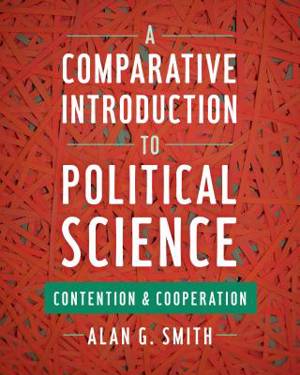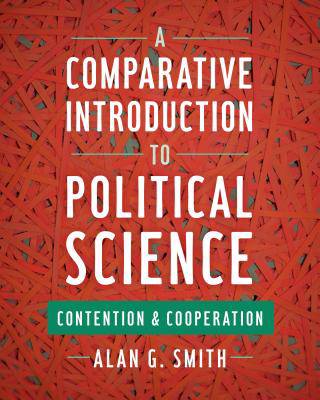
Door een staking bij bpost kan je online bestelling op dit moment iets langer onderweg zijn dan voorzien. Dringend iets nodig? Onze winkels ontvangen jou met open armen!
- Afhalen na 1 uur in een winkel met voorraad
- Gratis thuislevering in België vanaf € 30
- Ruim aanbod met 7 miljoen producten
Door een staking bij bpost kan je online bestelling op dit moment iets langer onderweg zijn dan voorzien. Dringend iets nodig? Onze winkels ontvangen jou met open armen!
- Afhalen na 1 uur in een winkel met voorraad
- Gratis thuislevering in België vanaf € 30
- Ruim aanbod met 7 miljoen producten
Zoeken
A Comparative Introduction to Political Science
Contention and Cooperation
Alan G Smith
Hardcover | Engels
€ 366,45
+ 732 punten
Uitvoering
Omschrijving
When do legislators tend to cast votes in cooperation with their parties and when do they go their own way? When and why do nations contend with each other, and when are they more likely to cooperate? Thematically arranged around the interplay of contention and cooperation, A Comparative Introduction to Political Science encourages students to explore causal factors and consequences related to political phenomena in order to become knowledgeable and resourceful citizens of their nations and the world. Emphasizing real-world politics, the author includes two country studies at the end of each chapter to expose the student to the richness of particular national experiences. In addition, the book employs careful topic sequencing, and practical definitions of terms, occasionally enhancing standard terminology by adding concepts that address the real-world spectrum between opposing extremes.
Specificaties
Betrokkenen
- Auteur(s):
- Uitgeverij:
Inhoud
- Aantal bladzijden:
- 624
- Taal:
- Engels
Eigenschappen
- Productcode (EAN):
- 9781442252585
- Verschijningsdatum:
- 8/04/2016
- Uitvoering:
- Hardcover
- Formaat:
- Genaaid
- Afmetingen:
- 203 mm x 257 mm
- Gewicht:
- 1292 g

Alleen bij Standaard Boekhandel
+ 732 punten op je klantenkaart van Standaard Boekhandel
Beoordelingen
We publiceren alleen reviews die voldoen aan de voorwaarden voor reviews. Bekijk onze voorwaarden voor reviews.











